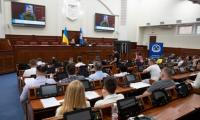On 7 July 2023, the Conference "Local self-Government - the Basis of European Integration and Restoration of Ukraine" was held in Kyiv in a hybrid format.
The Conference was attended by over 500 participants:
they were city, settlement and village mayors, local councillors of Ukraine and EU member-states, Members of the European Parliament, high-ranking officials of the European Union and the Council of Europe, representatives of the Verkhovna Rada of Ukraine, the Cabinet of Ministers of Ukraine, the diplomatic corps, international organisations and municipalities, leading experts, academics, and the media.
The participants were welcomed by:
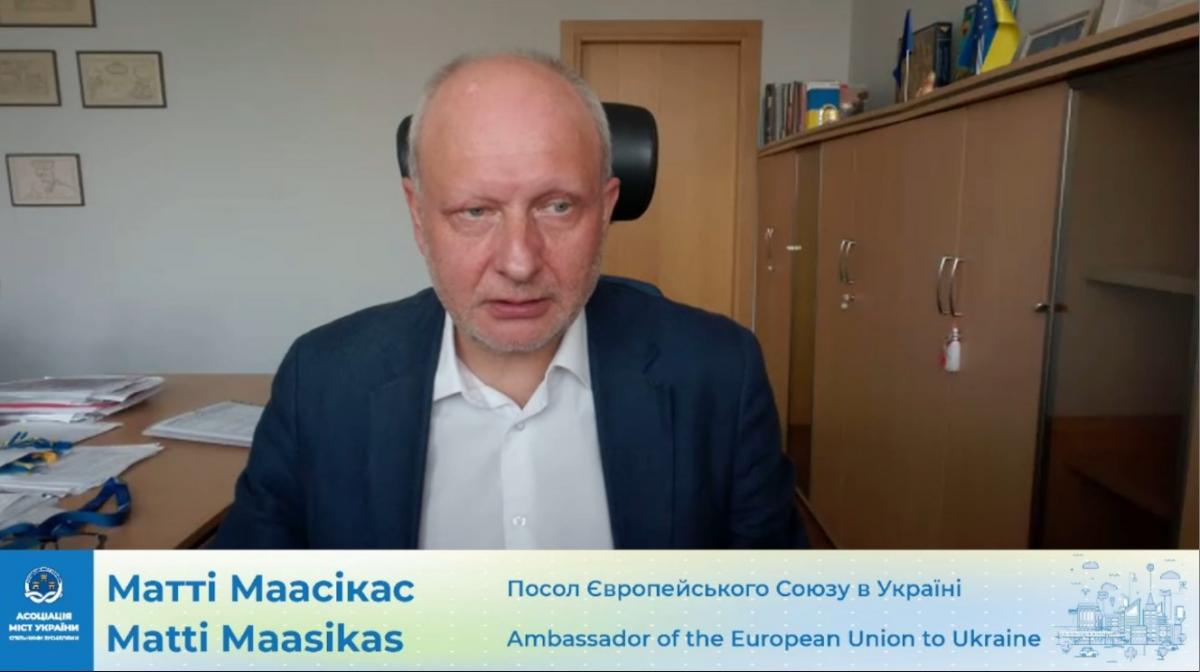
Matti Maasikas, Ambassador of the European Union to Ukraine, stated: “І am always glad to be in the Association of Ukrainian Cities, which represents the Ukrainian decentralisation community at its best – with bottom-up initiative, pro-active approach, and resolve to work both for their small motherlands and for the Ukrainian state as a whole.
The EU has been proud to provide a consistent support to decentralisation reform from its very outset, both strategically and via our flagship U-LEAD with Europe project.
Today, decentralisation is considered a signature reform for Ukraine, and rightly quoted as of the major achievements of the country after the Revolution of Dignity.
But these solemn concepts have a very practical meaning.
Firstly, in Ukraine under the full-scale Russian invasion municipalities played a key role in maintaining the resilience of the country – they have managed to mobilise popular support, re-set basic social services, help organise voluntary territorial defence, and receive large numbers of internally displaced persons.
Secondly, in the EU enlargement context, decentralisation can play an important role in what we call “good governance”. Effective multi-level governance can help candidate countries meet the Copenhagen criteria, and is thus also a part of the Commission’s assessment under the annual enlargement reports. The first of such report will be published by the European Commission in autumn.
Thirdly, and what is particularly relevant in the context of today’s Conference, local self-government and decentralisation are instrumental for the effective recovery of Ukraine.
And for this, we need a well-structured plan which is owned by Ukraine, and ensures a whole-of-the-country approach. That means also making full use of achievements of decentralisation reform.
The last weeks have brought important developments on the recovery track: the London Conference and the presentation of the Commission’s proposal for the Ukraine Facility.
The London Conference helped in mobilising international support for Ukraine's economic and social stabilisation and recovery from the effects of russia's war of aggression, both in the short and long term.
In parallel, the European Commission proposed a new instrument - the Ukraine Facility; it will play a key role in providing predictable financial support for Ukraine over the 2024-2027 period.
I can already tell, and this features quite prominently in its specific provisions, that municipalities should be instrumental for an effective implementation of this new strategic instrument.
In the coming weeks the EU will work at high speed, both internally, and with our Ukrainian partners to bring it into operation soon.
Now, there will be a lot of down-to-earth work where we count on the pro-active and constructive ideas coming from the local level on how to benefit from the potential of both the most agile municipalities, and those which will need help.
I am sure that – throughout the panels – the participants present today can bring the best of their contributions – local leaders, representatives of the central executive, members of the Verkhovna Rada, and municipal associations from the rest of Europe.
The EU will keep up its support all along the way”.
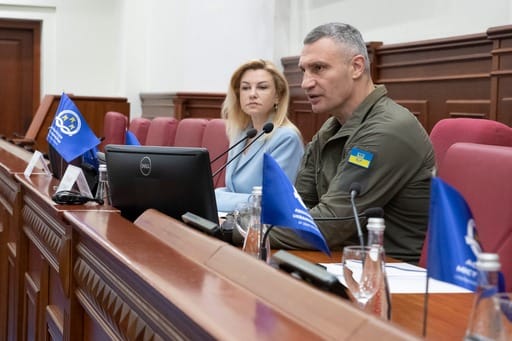
Vitaliy Klitschko, Chairman of the Association of Ukrainian Cities, Mayor of Kyiv, said:
“Dear friends, colleagues, guests,
A year ago, we gathered in this hall for the "reVIVEd Ukraine - reVIVEd Communities" Forum. Back then, for the first time since the beginning of the large-scale war, we discussed the future of Ukraine’s recovery.
And adopted a Manifesto on the support of the municipalities of the European Union member-states for granting Ukraine the status of an EU candidate.
We are grateful to all our international partners, European municipalities for supporting Ukraine on its Euro-Atlantic path – Ukraine has been granted the status of a candidate for accession to the European Union.
Today we are fighting the aggressor for Ukraine’s independence and freedom. The Armed Forces are fighting heroically on the frontline. And we, the representatives of local self-government, ensure the lives of people in cities, settlements and villages of our country.
We also need to introduce legislative changes that will allow Ukraine not only to become a member of the EU and NATO, but also to provide all residents with decent living and working conditions.
And these changes need to be prepared now. Municipalities should have sufficient resources and powers to ensure the safety of their territories and residents.
We must build the kind of public administration system that our defenders are fighting for today.
These should be the rules and principles of democracy: fair and independent courts, simple economic regulation, transparent taxation, clear division of powers and responsibilities, and strong local self-government, as in developed democratic countries.
These are the changes outlined in the Resolution of the European Parliament adopted on 15 June, 2023.
The European Parliament called the decentralisation reform and the development of local self-government a prerequisite for Ukraine’s successful recovery and integration into the European community. As is the case in democratic countries.
Moreover, MEPs called on the Ukrainian government to strengthen local self-government. And to use the success of the decentralisation reform in the process of rebuilding and restoring Ukraine. They also drew attention to further cooperation with the Association of Ukrainian Cities and the European Alliance of Cities and Regions for the Reconstruction of Ukraine.
And we are developing our cooperation with European colleagues. After all, local governments ensure democratic governance, transparency and openness of decision-making processes. They ensure the involvement of citizens in solving issues that affect their lives.
That is why the position of local self-government is united and developed by the Association of Ukrainian Cities, taking into account European experience and democratic principles. This position is supported by international partners.
And it should become the basis for continuing the decentralisation reform and implementing European legislation in Ukraine if we want to join the EU and NATO.
I have already said this and I want to emphasise it again: local self-governance in all democratic countries is built from the bottom up, not vice versa. And this is the basis of democracy and state development.
We must all work together today. All together to bring Ukraine’s Victory closer! And continue to implement reforms and democratic changes in our country.
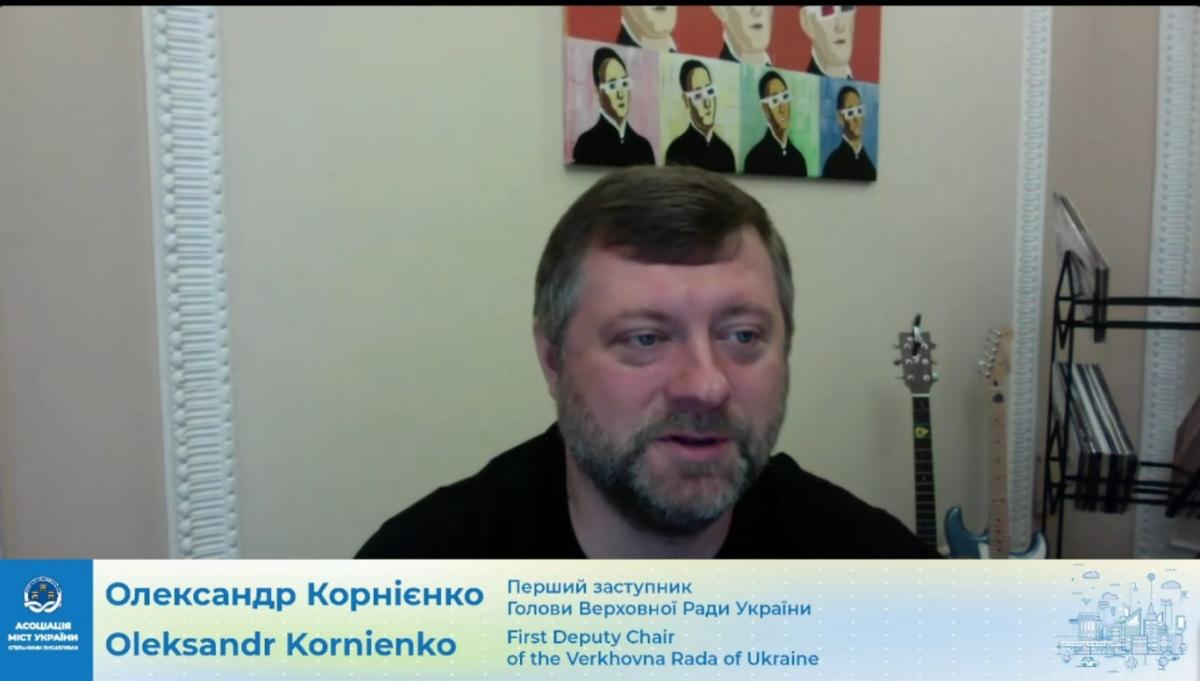
Oleksandr Korniienko, First Deputy Chair of the Verkhovna Rada of Ukraine, said: “The decentralisation reform will be one of the main components of our European integration. The component of cooperation between the European Commission and Ukraine through civil society organisations is very important. We need to work on improving the managerial skills and increasing the capacity of local self-government. That is why we in the Verkhovna Rada of Ukraine are doing everything for this.”
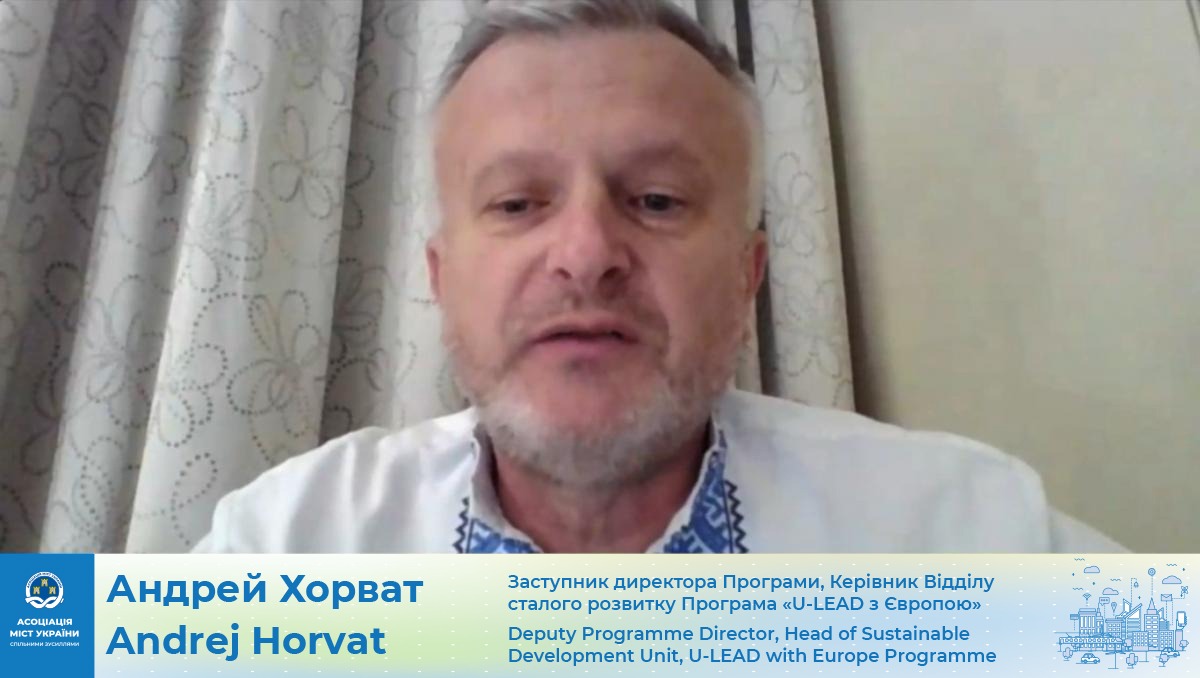
Andrej Horvat, Deputy Programme Director, Head of the Sustainable Development Unit of “U-LEAD with Europe” Programme, expressed his conviction that “Local authorities have proved their effectiveness, so U-LEAD with Europe continues to provide comprehensive support to local self-government in Ukraine through the Bridges of Trust Project, which is one of the main pillars of work after the start of the full-scale invasion, aimed at restoring and rebuilding Ukrainian municipalities and strengthening their relations with European municipalities in the process of EU integration.”
Oksana Prodan, Advisor to the Chairman of the Association of Ukrainian Cities, who moderated the opening of the Conference, thanked all international partners for supporting Ukraine in its fight against the aggressor and stressed that all European institutions, which are now defending democratic values together with Ukraine, noted the need to develop local self-government and continue decentralisation reforms for Ukraine's further movement towards the European Union.
The discussion during the Conference was held in thematic panels.
During the first panel discussion, the participants discussed the restoration of municipalities in the context of Ukraine's European integration.
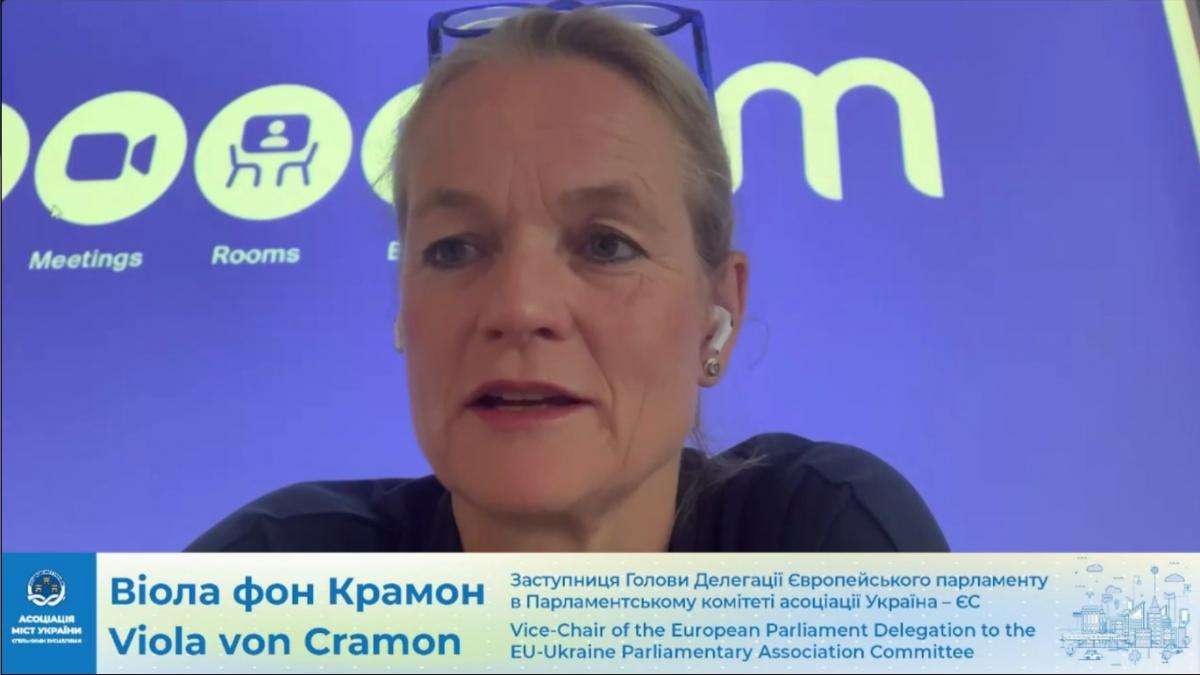
Viola Von Cramon, Vice-Chair of the European Parliament Delegation to the EU-Ukraine Parliamentary Association Committee, said: "Ukraine is confidently moving towards the European Union, we are all happy that there is political will in Ukraine at all levels. And when the Victory comes, when the reconstruction begins and expanded funding comes, we have to make sure that there are decentralised institutions that can take the funds from the programmes and use them wisely. That is why we pay great attention to strengthening mayors and local councils, who work at the basic level and have a lot of experience and know the basic needs of people”. She stressed the Resolution adopted on 15 June, 2023, in which the European Parliament calls on the Ukrainian authorities to continue strengthening local self-government as an important component of the future reconstruction and recovery of Ukraine, warns against amending legislation in favour of individuals at the expense of equal conditions and transparency, and urged the President of Ukraine not to sign the draft law 5655 on urban development.
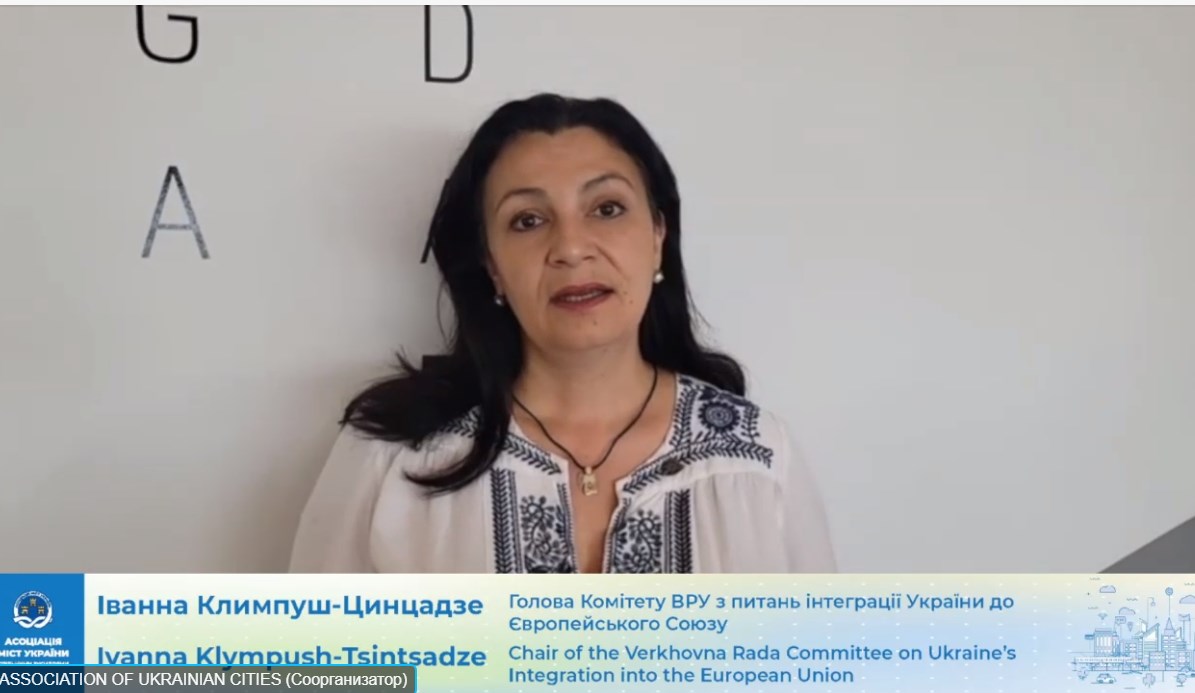
Ivanna Klympush-Tsintsadze, Chair of the Verkhovna Rada Committee on Ukraine's Integration into the EU, emphasised: “The historic decision to grant Ukraine the EU candidate status a year ago was made possible thanks to Ukraine's defence forces, their heroism in resisting the war and the efforts of the government and civil society. We believe that we will succeed in mobilising society at all levels to open negotiations on EU membership this year. I expect that by September, the Verkhovna Rada will have completed its tasks and we will have a positive assessment by the EU in October."

Georg Milbradt, Special Envoy of the Government of the Federal Republic of Germany for Governance and Decentralisation Reforms in Ukraine, noted that despite the fact that Ukraine cannot complete the decentralisation reform by amending the Constitution due to the war, it must develop its legislation with all the guarantees provided to local governments in line with European standards. In particular, the principle of subsidiarity should be taken into account, meaning that decisions should be made at the level of government that is closest to the people. The principles of fiscal decentralisation should also be taken into account, which will create a balance between fiscal revenues and budget expenditures of municipalities. Special attention should be paid to the formation of budgets for financially weak municipalities.
Municipalities should be able to influence their own socio-economic development and be legal entities in accordance with the Roman concept of law, which is common in the EU.

Niina Ratilainen, Member of the European Committee of the Regions, Working Group on Ukraine, Turku City Council (Finland), shared the experience of cooperation at the local government level, noting that this year marks the year of twinning between the cities of Kharkiv and Turku. “All of Ukraine's international partners have now realised that it is necessary to link the reconstruction process with Ukraine's future accession to the EU. We at the Committee of the Regions are working closely with the Association of Ukrainian Cities and other institutions within the European Alliance of Cities and Regions for the Reconstruction of Ukraine to share various practices among partners.”

Oleksandr Sienkevych, Mayor of Mykolaiv, moderator of the panel discussion, stressed that the decentralisation process should focus, especially after the war, on financial decentralisation, because today regions and municipalities do not have the financial instruments to compete with each other by creating separate economic zones, industrial parks and technology parks: " Of course, the territories that are closer to the border will always lose out to those in the west and closer to the centre, lacking economic tools. In fact, these territories are standing idle today, instead of working and creating additional value, additional money for their municipalities."

Kelmend Zajazi, Executive Director of the Network of Associations of the Local Authorities of South East Europe, shared the experience of municipalities that have gone through the European integration process. He drew attention to several important messages that show the process of EU integration. “The process of joining the EU means that the rule of law must come first. When we were joining the EU, the role of local authorities and associations was put on hold”, K. Zajazi said. He added that now they are turning to people's rights, basic principles, the rule of law and democratic institutions, for the implementation of which the importance of local authorities cannot be forgotten.
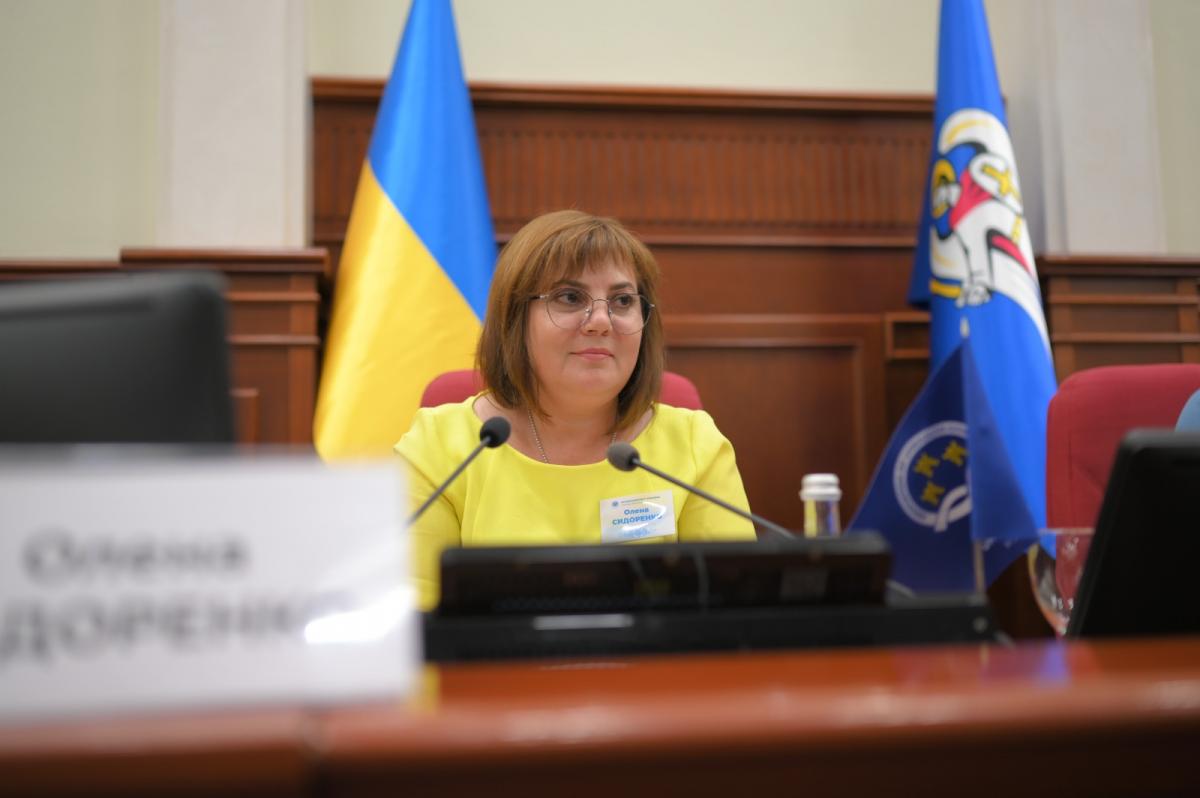
Olena Sydorenko, Mayor of Orzhytsia (Poltava Region), spoke about the municipality's participation in the “Bridges of Trust” Project, implemented by the Association of Ukrainian Cities jointly with the Council of European Municipalities and Regions with the support of the “U-LEAD with Europe” Programme. She stressed that thanks to the Association of Ukrainian Cities, many Ukrainian municipalities have received partner municipalities that share their experience of joining the EU, project preparation, best practices, experience in exercising powers at the local level, and others: "The municipality of Budakeszi (Hungary) became the partner of the Orzhytsia municipality in this Project. Despite the different realities of development and the official position of the Hungarian government, we were convinced during the study visit to the partner hromada: Ukraine can count on support, and our municipality understands that the cooperation and the project we are already starting to write with Budakeszi can be implemented, as we can submit it for funding together."

Maroš Sagan, Mayor of Cifer Municipality, Representative of the Association of Towns and Municipalities of Slovakia, shared the experience of Slovak municipalities in terms of the impact of European legislation on their lives. He emphasised that it took Slovakia many years to get there (it became a member of the EU in 2004), as EU integration is a complex and lengthy process. After joining, the country becomes part of the EU legal system. And its self-government sphere is not governed by EU authorities, although it is subject to EU legislation in all areas, which has both positive and negative impact on the functioning of municipalities.
Stefan Gorda, Minister-Counsellor, Chargé d'Affaires of the Embassy of the Republic of Moldova in Ukraine, Turkmenistan, the Republic of Uzbekistan and the Republic of Armenia, sent a question to the conference chat: “The strength of the EU is in its regions. In this sense, you are brave because you are ready to to discuss issues related to decentralisation honestly and openly. A question for administrations working in municipalities densely populated by ethnic minorities. It is well known that the EU has certain prerequisites for Ukraine's accession. How can local authorities assist central and other Ukrainian authorities to fulfil the conditions set by the EU for the start of the Association discussion? What are special things or methods of work there in municipalities with mixed populations? Do you take into account the specific wishes of the population speaking a language other than Ukrainian, both at home and in the municipalities themselves? I wish you every success. Glory to the Armed Forces! Glory to Ukraine!"
Oleksandr Sienkevych, as moderator, translated the question again and was the first to answer:
“There is no language issue in Ukraine if it is not promoted by the russian media. As for Mykolaiv, before the full-scale invasion, about 90% used russian; we had schools where teaching was conducted in russian. After the invasion, we stopped teaching in russian on my instructions. Schools in Mykolaiv teach exclusively in the state language," said O. Sienkevych. He stressed that many people have consciously changed their attitude to the russian language and everything russian.
During the war, 159 civilians died in the city, including 2 children, all of whom were russian-speaking. This is the best example of how russia protects russian speakers."
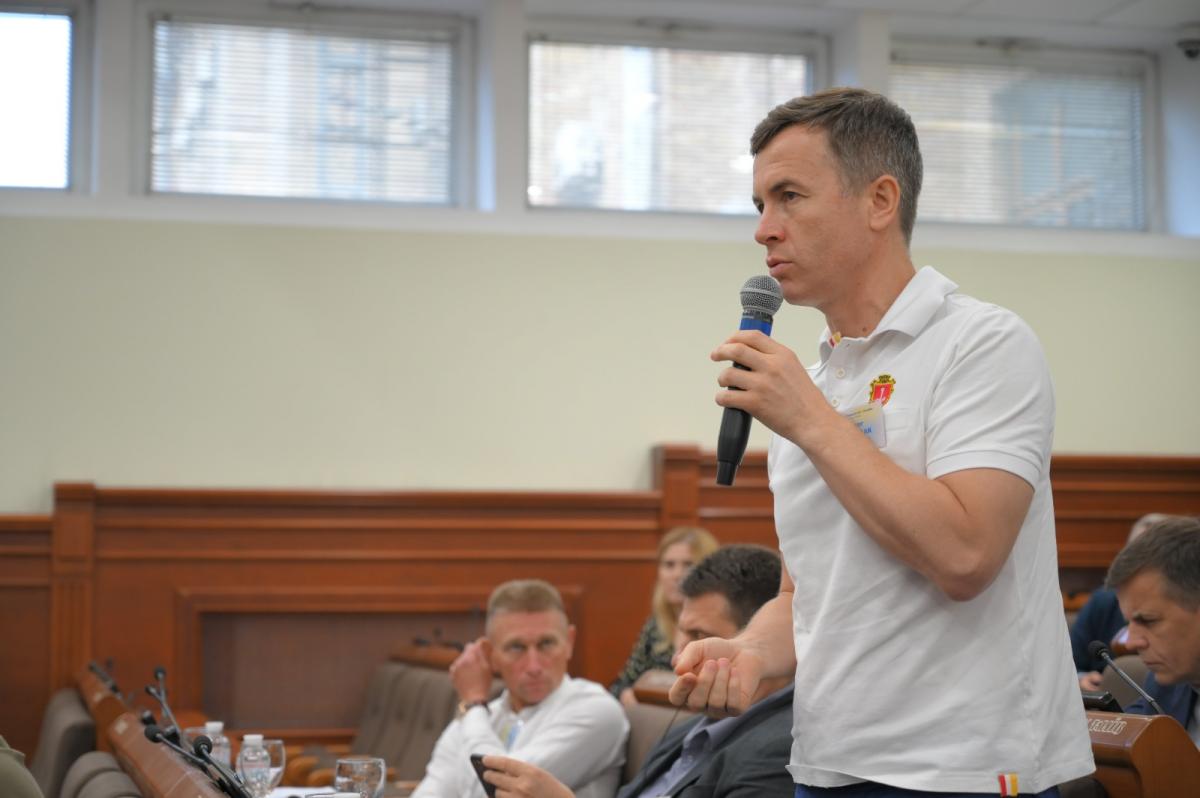
Oleh Bryndak, Acting Deputy Mayor of Odesa, responding to this question, said: “Odesa is a multinational city with a large Moldovan community. We have a unified approach in this regard. We have never experienced any language problems, we have Bulgarian, Jewish, Greek schools, if the Moldovan community needs one, we will create a Moldovan school. We have no language problems.”
During the second panel discussion, the participants discussed approaches and principles for the restoration and sustainable development of municipalities, their infrastructure and economy in the context of decentralisation.
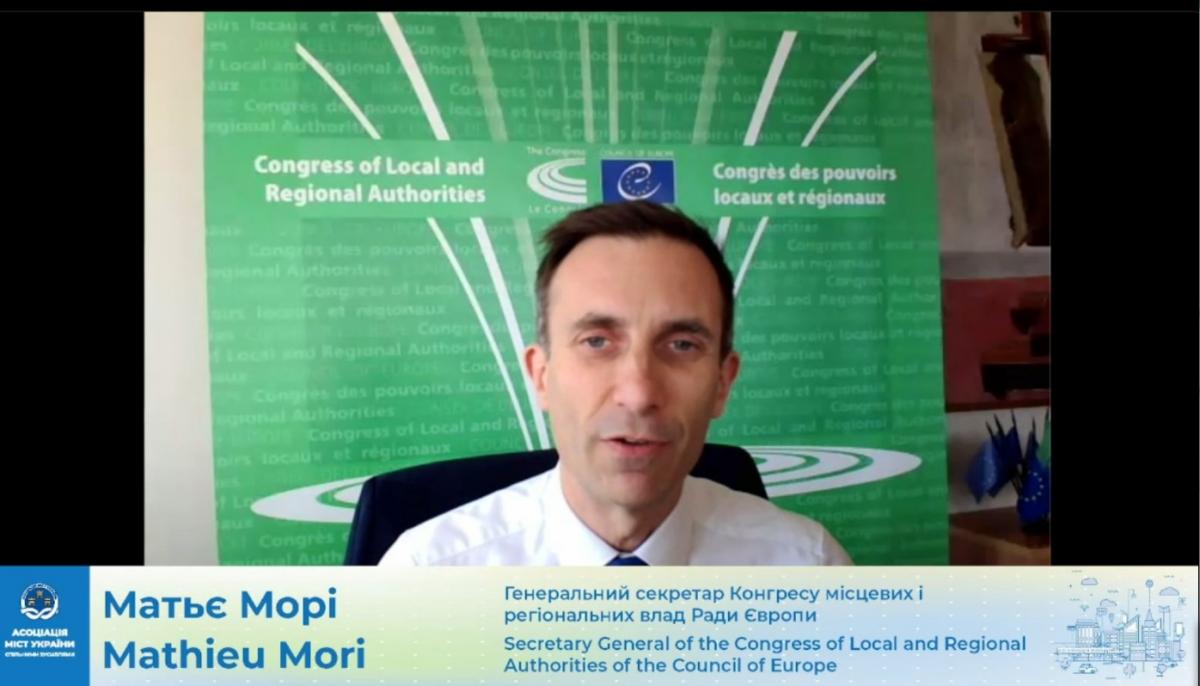
Mathieu Mori, Secretari General of the Congress of Local and Regional Authorities of the Council of Europe, highlighted three main aspects of recovery: international support, decentralisation and sustainability. He underlined the role of local self-government in ensuring democracy and its key role in the reconstruction of Ukraine. "The Council of Europe supports the process of decentralisation and democratisation at the local level. I call for a dialogue between all participants in the process of restoration and reconstruction of Ukraine," he said.

Oleksandr Korniienko, First Deputy Chair of the Verkhovna Rada of Ukraine, proposed to dot the i’s and cross the t’s in the issue of updating the social contract between local self-government and the state, noting that part of the contract is already clear – security is primarily guaranteed by the state: “Unfortunately, the Constitution of Ukraine does not reflect this, but we understand that it is a matter of time. This arrangement should be based on the European Charter of Local Self-Government. For us, this is a fundamental document. For its part, local self-government must understand that, in accordance with the European Charter of Local Self-Government, it has not only rights but also responsibilities. It is necessary to finally enshrine in the Constitution the status and guarantees for self-government and, in accordance with the Charter, the issue of proper and "careful" supervision over the activities of local governments”.
He admitted that local self-government should also be involved at the level of decision-generating, not just decision-making.
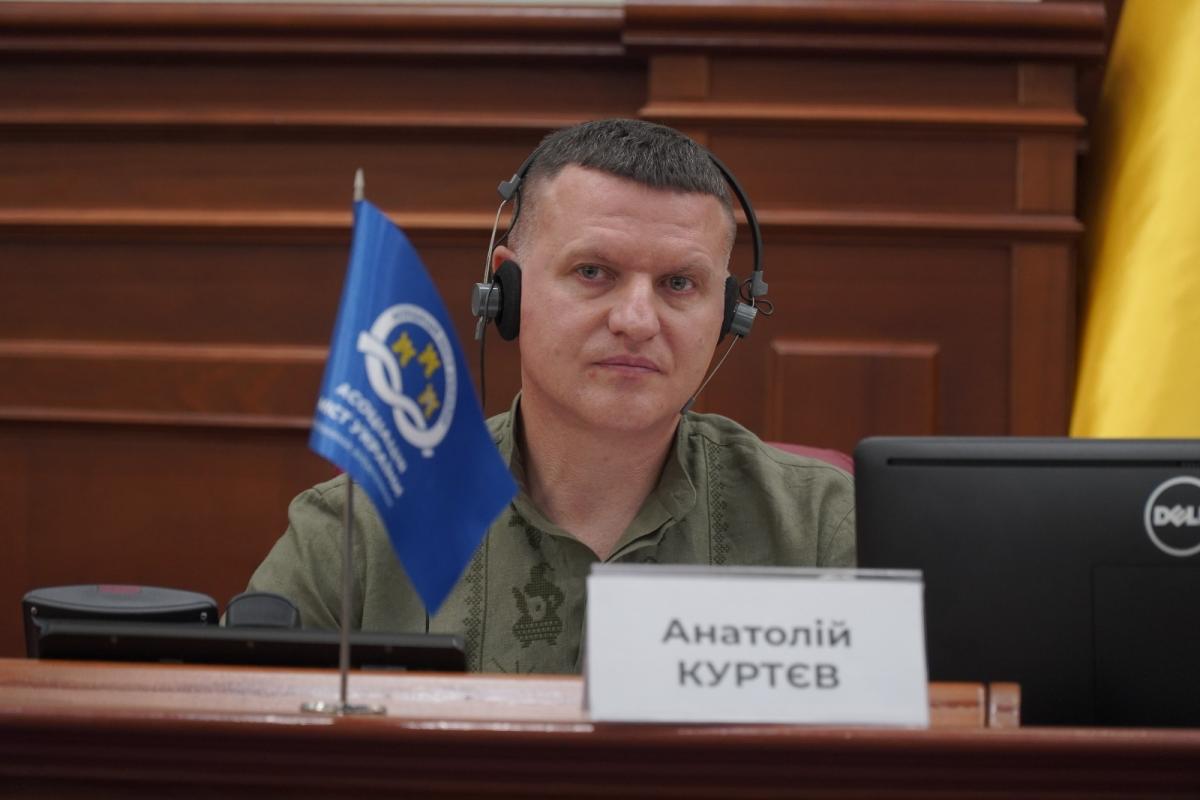
Anatolii Kurtiev, Acting Mayor of Zaporizhzhia, Secretary of the Zaporizhzhia City Council, presented a video about the work of Zaporizhzhia from the beginning of the full-scale invasion to the present day. He underlined that the city has signed 595 memoranda with volunteers, charitable foundations and international partners:
“Thanks to this well-established cooperation, the city is able to implement important projects, provide people with humanitarian aid, help citizens affected by hostile attacks and provide decent education, healthcare, social protection and administrative services to city residents and IDPs.”

Rostyslav Tistyk, Chair of the Subcommittee on European Integration of the Parlimentary Committee of Budget, spoke about the interaction of the Ukrainian Parliament in the context of war and legislative initiatives on sustainable development and municipality budgets.
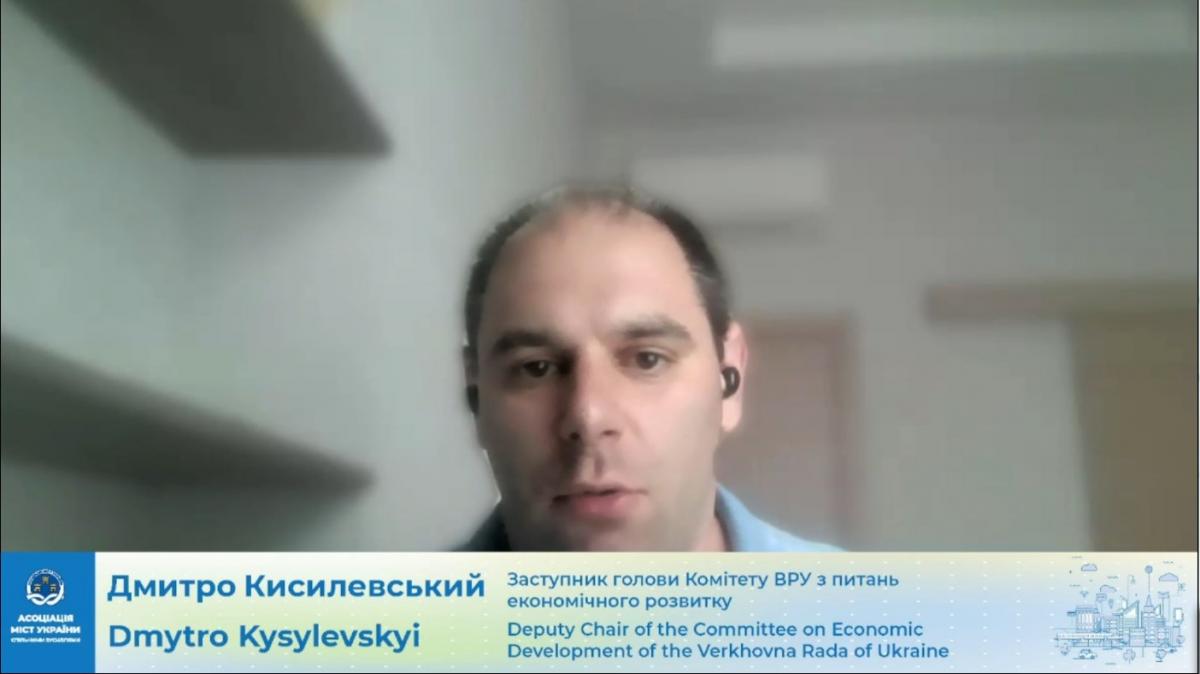
Dmytro Kysylevskyi, Deputy Chair of the Committee on the Economic Development of the Verkhovna Rada of Ukraine, spoke about municipality financing, about the opportunities of municipalities to earn money for reconstruction and provide jobs for residents by creating conditions for businesses and investors. He noted that the role of municipalities is significantly underestimated. The mayor of municipality has a planning horizon of at least 5 years, which is critical for industrial and economic development. The state should also equip municipalities with economic development tools to engage municipalities in the fight for investment and financial resources for recovery.

Liudmyla Biriukova, Mayor of Velyka Pysarivka, (Sumy Region), spoke about the challenges that Velyka Pysarivka and other border municipalities faced in the recovery process after the full-scale invasion, as well as the achievements of the municipality she leads.

Vitalii Bezgin, Chair of the Subcommittee on Administrative and Territorial Structure and Local Self-Government of the Verkhovna Rada Committee on the Organisation of State Power, Local Self-Government, Regional Development and Urban Planning, noted that the military personal income tax, thanks to the Association of Ukrainian Cities, remained in the budget of municipalities in 2023, so, according to the results of the first quarter, local budgets, unlike the state budget, are overfulfilled. He also noted that this year the draft law No. 6504 on service in local self-governments was adopted in its entirety, stressing that this is a huge reform that will have to be carried out.
The second panel discussion was moderated by Anatolii Fedoruk, Mayor of Bucha.
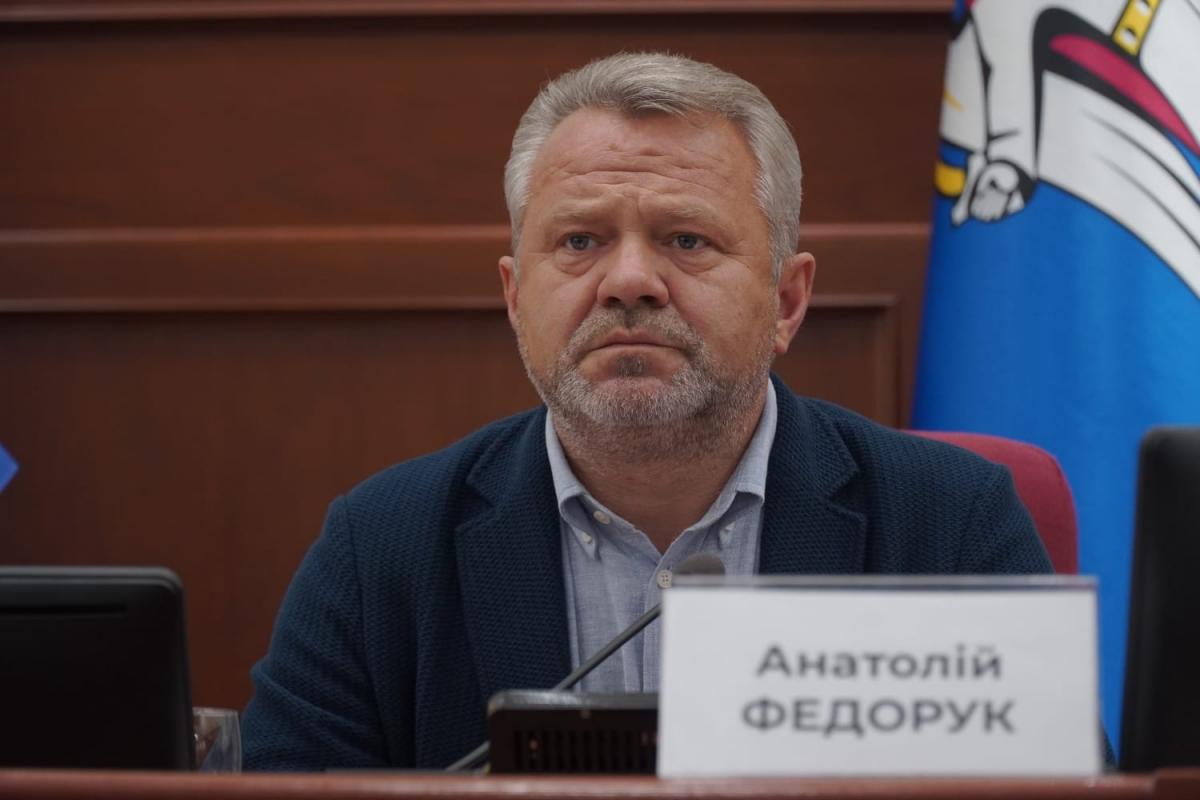
During the third panel discussion, representatives of municipalities exchanged experience from different countries on establishing partnerships for the restoration and development of Ukrainian municipalities.

Fabrizzio Rossi, Secretary General of the Council of Europian Municipalities and Regions, first of all expressed his condolences to Lviv, which suffered a terrible missile attack. He stressed the importance of bilateral cooperation between Ukrainian and European municipalities within the framework of the “U-LEAD with Europe” Programme with the participation of the AUC and CEMR to ensure the process of reconstruction of Ukrainian municipalities. "Reconstruction is not only about rebuilding bridges, roads, houses, it is about cooperation and long-term relationships. The "Bridges of Trust" Programme is aimed at ensuring such cooperation," the speaker said.
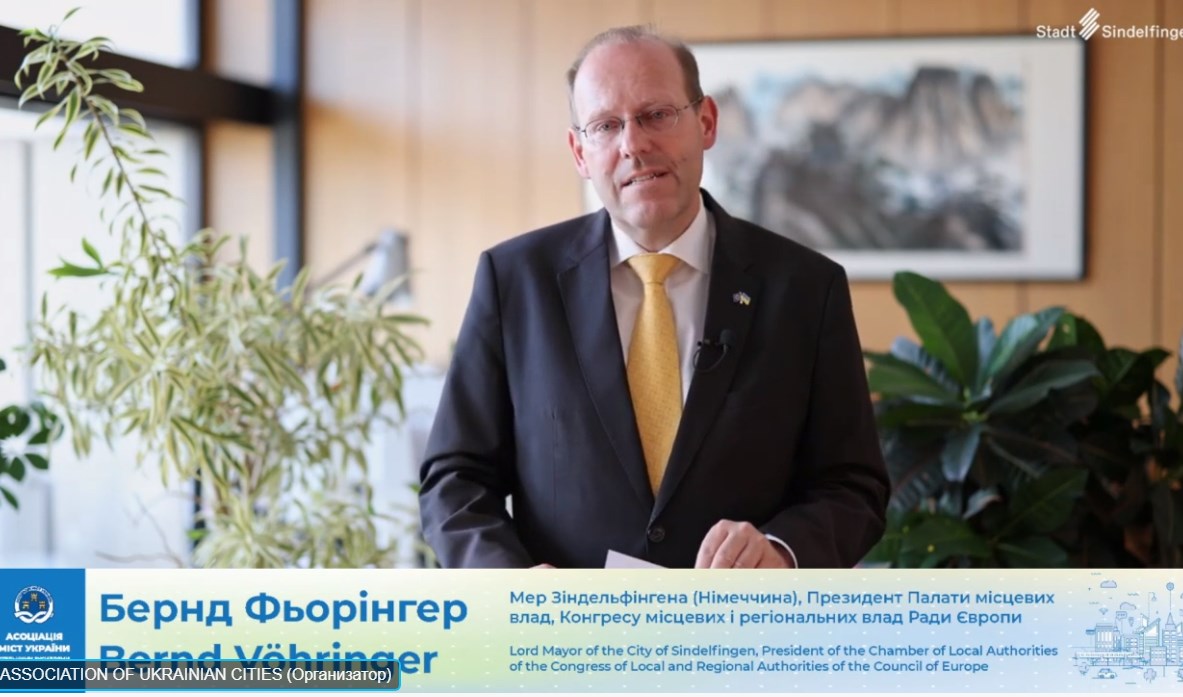
Berndt Vöhringer, Lord Mayor of the City of Sindelfingen (Germany), President of the Chamber of Local Authorities of the Congress of Local and Regional Authorities of the Council of Europe, spoke about the "Cities4Cities" platform, which in 2022 helped to address a significant number of immediate needs of Ukrainian municipalities. The platform is designed not only for short-term cooperation, but should also ensure long-term cooperation between Ukrainian and European municipalities. He stressed the importance of such bilateral cooperation, especially in the process of transforming the activities of municipalities to meet European standards.
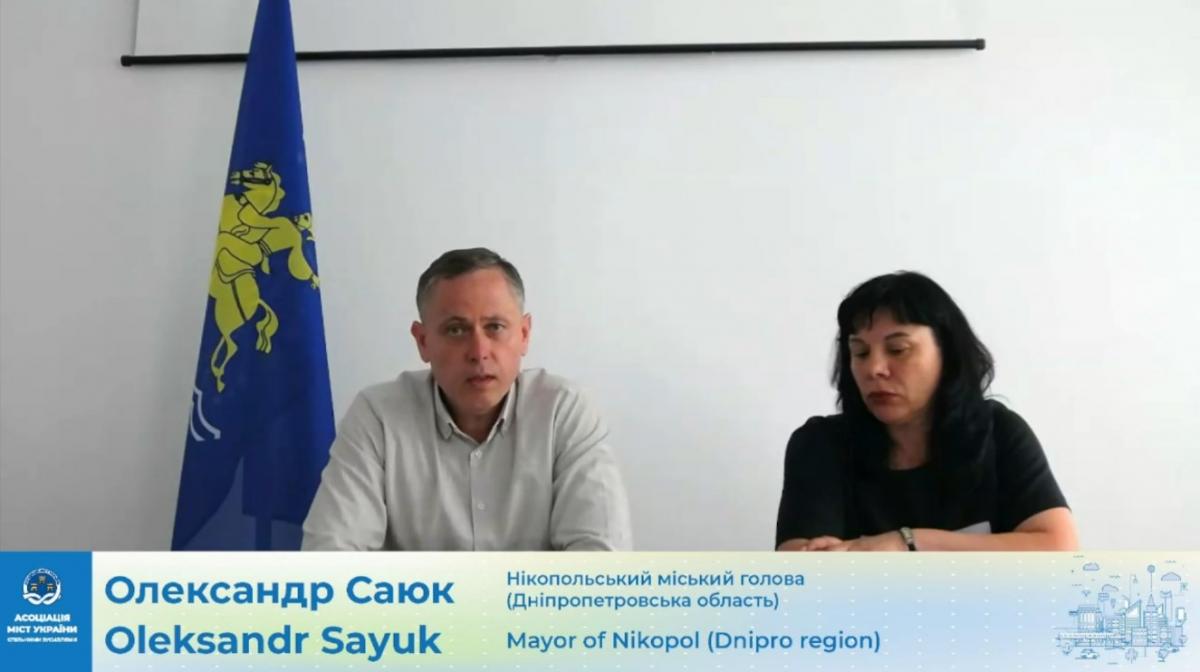
Oleksandr Saiuk, Mayor of Nikopol (Dnipro Region), informed about the work of the city in waduring the warr. He also emphasised that within the framework of the "Bridges of Trust" Project, during a study tour to the Basque municipalities (Spain), a proposal for the restoration and reconstruction of the Nikopol Water and Sewerage Production Department was developed, and that specialists from the Donostia-San Sebastian municipal campaign AMVISA, which provides centralised water supply and sewerage services, were involved in this cooperation.”

Oleh Stohnii, Mayor of Romny (Sumy Region), spoke about the work and life support of the Romny urban municipality since the beginning of full-scale aggression of the russian federation and shared his experience of establishing cooperation within the framework of the Project with the Italian municipality of Inveruno. He also stressed the importance of regulating the issue of paying personal income tax at the place of actual location of production facilities of a particular enterprise.
Olha Tsytsiura, Secretary of the Zelenodolsk City Council (Dnipro Region), spoke about the work of the municipality since the beginning of the full-scale invasion of the russian federation, outlined the areas of cooperation with international partners to rebuild infrastructure, and told about the Kryvyi Rih thermal power plant, green energy company Solar Park, and agricultural enterprise Nibulon, which are located on the territory of the municipality.”
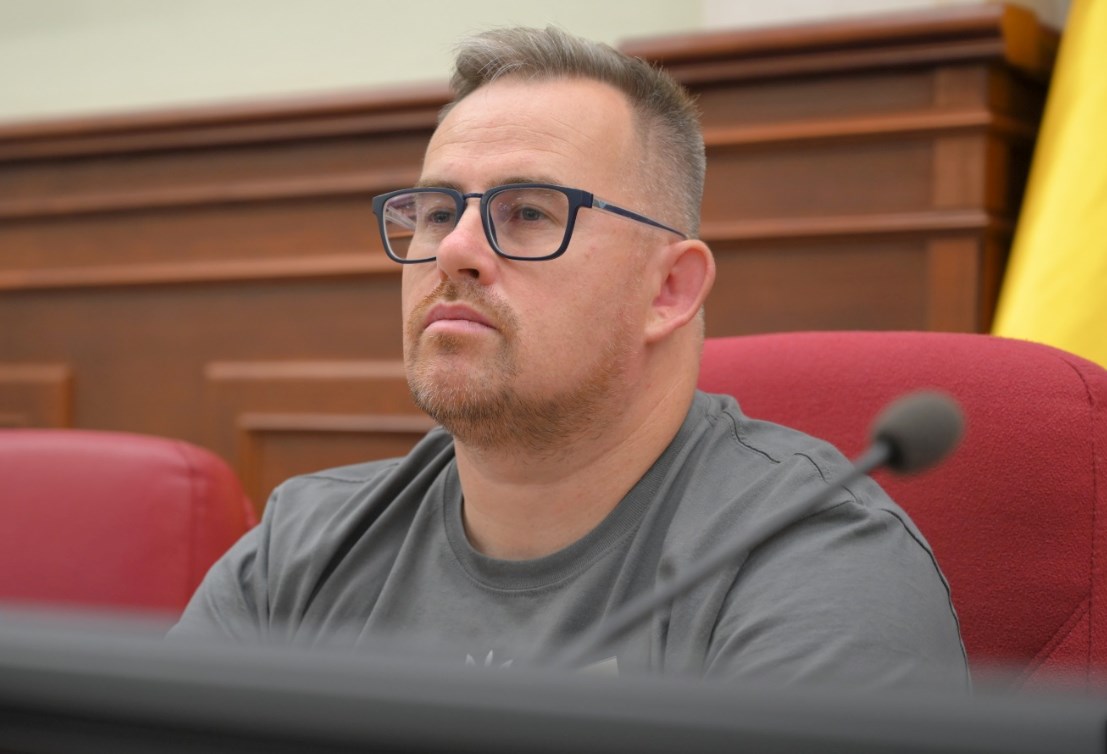
Andrii Horb, Mayor of Pidhorodne (Dnipro Region), spoke about the priorities and directions of the municipality development. He noted the need to create a centre for veterans and their families, with the possibility of psychological and physical support, to implement projects to build a water supply and sewerage system in Pidhorodne, as well as a preschool.

Giorgio Gori, Mayor of Bergamo (Italy), spoke about a joint project to restore Bucha (Kyiv region) after the occupation by russians, namely kindergartens, and provide psychological support to the population who witnessed the russians’ brutality. He stressed that today Italians want to be close to Ukrainian municipalities in two ways: 1) implementation of the plan of territorial self-government and inclusive urbanisation, especially for young and older generations; 2) political support.

The third panel discussion was moderated by Vitalii Maletskyi, Mayor of Kremenchuk.
Oleksandr Slobozhan, Executive Director of the Association of Ukrainian Cities, summed up the results of the work and thanked all participants.
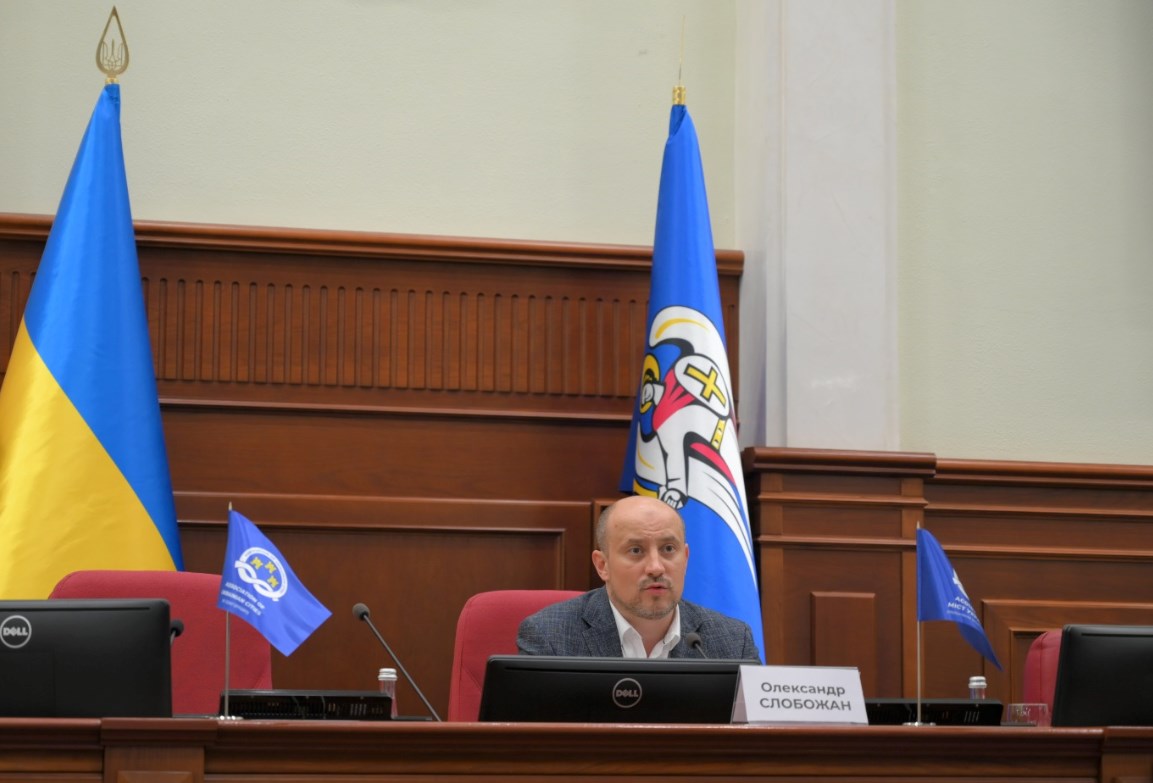
“A year ago, during the "reVIVEd Ukraine - reVIVEd Communities" Forum, we approved an appeal to our foreign partners from Ukrainian municipalities to support Ukraine's movement towards the European Union and grant Ukraine candidate status. And Ukraine was granted this status!
Recently, the European Parliament and the European Commission have adopted a number of documents that set out the approaches and principles of supporting Ukraine in its recovery and on its way to the European Union. It is important that all the documents of the European institutions contain provisions on the importance of developing local self-government in Ukraine and continuing the decentralisation reform for Ukraine's European integration.
Currently, all offline and online participants have received a draft document – the Manifesto, which confirms the position of the Conference participants from the Ukrainian side on the movement towards European standards. All participants can provide their suggestions and comments to the draft, after which we will publish the Manifesto and start the next stage of cooperation, European integration of Ukraine and development of local self-government.
On behalf of the Association of Ukrainian Cities, I would like to thank our partners – the municipalitis of the European Union and local self-government associations – for supporting Ukraine in the fight against the russian aggressor, for systematic support of local self-government, sustainable development of municipalities and for supporting Ukraine on its path to European integration!"
The Conference was organised by the Association of Ukrainian Cities within the framework of the "Promoting comprehensive municipality development through analytics, dialogue and international cooperation" Project, implemented with the support of the “U-LEAD with Europe” Programme.
The Ukrainian version is available here.

